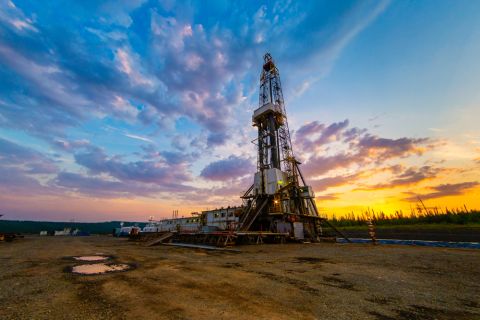
Although experts say Elon Musk is right, they also noted oil and gas production cannot be increased overnight. (Source: Kathy Hutchins / Shutterstock.com)
As oil prices continue soaring to multi-year highs, Tesla CEO Elon Musk said that U.S. urgently needs to increase its oil and gas output. His tweet comes on the heels of Biden administration’s serious considerations to ban Russian oil imports amid rising concerns to maintain steady oil supplies globally.
“Hate to say it, but we need to increase oil and gas output immediately,” Musk said in a tweet on March 4, adding that “extraordinary times demand extraordinary measures.”
While Musk noted in a follow-up tweet that higher fossil fuel production would negatively impact his EV company, he also acknowledged that sustainable energy solutions are not quick enough to offset limited Russian oil and gas exports.
“Obviously, this would negatively affect Tesla, but sustainable energy solutions simply cannot react instantaneously to make up for Russian oil and gas exports,” Musk wrote.
Kirk Edwards, president of natural gas producer Latigo Petroleum, applauded Musk’s call.
“It’s time for the United States to come together and embrace, again, all forms of energy,” Edwards said in a LinkedIn post.
“We can help rescue Europe and punish Russia for what they are doing to Ukraine by condemning any country supporting Russia that is buying their oil. Starting with our own United States refiners. Let’s buy American oil first and Russian last. Welcome to Texas and Austin Elon. Glad you are coming around to our way of thinking on sensible energy solutions,” Edwards said.
Although Musk is right, oil and gas production cannot be increased overnight. U.S. oil production is currently 11.6 MMbbl/d, well below its pre-pandemic peak near 13 MMbbl/d.
In an interview with Financial Times, Scott Sheffield, CEO of Pioneer Natural Resources, said that the U.S. shale oil patch would take many months to sharply boost output. While shale regions such as West Texas could increase output by about 700,000 bbl/d this year, the growth rate could double to 1.4 MMbbl/d in 2023 and 2024.
Sheffield said the main reason for delay in boosting domestic production include supply chain constraints and demands from Wall Street that operators use their oil price windfall to pay dividends rather than drill more wells.
According to Doug Sheridan, managing director and founder of EnergyPoint Research, global oil and production is restricted because of a strong push from activists for the divestment of fossil fuels.
“The world is unable to produce more petroleum at this time of dire need because of coordinated and successful efforts of a network of influential persons and entities—including the IEA, UN, WEF—that have worked to force oil and gas companies to stop developing the resources necessary to increase production today,” Sheridan told Hart Energy.
“Many have been warning of the unintended consequences of these ill-advised and short-sighted efforts, and now we’re seeing them manifest,” he continued. “A failure to stop the demonization of oil and gas will only further undermine public faith that our leaders, while ensuring energy crises are repeated in the future.”
Additionally, Sheridan said that the U.S. oil and gas industry needs support from the Biden administration.
“The federal bureaucracy needs to start working with the industry rather than against it,” he said. “The economic and geostrategic role of energy and energy security are too important to the future of the country—and to the world—to let the status quo stand."
Recommended Reading
Chesapeake Stockpiles DUCs as Doubts Creep in Over Southwestern Deal
2024-05-02 - Chesapeake Energy is stockpiling DUCs until demand returns through growth from LNG exports, power generation and industrial activity.
WTI Delivered to East Houston Hits Highest Premium in Nearly Three Years
2024-05-01 - Oil takeaway capacity from the Permian Basin will tighten next month due to scheduled pipeline maintenance.
CPS Closes $785MM Deal for Talen Energy’s Texas NatGas Plants
2024-05-01 - CPS Energy has acquired all assets associated with the 897-MW Barney Davis and 635-MW Nueces Bay natural gas plants in Corpus Christi, Texas, and the 178-MW natural gas plant in Laredo, Texas.
Wirth: Chevron Won’t Put ‘New Capital into Venezuela’
2024-05-01 - California-based Chevron Corp. doesn’t plan on allocating more capex into its operations in Venezuela even though it still has U.S. approval to operate there, despite Washington sanctions.
Tinker Associates CEO on Why US Won’t Lead on Oil, Gas
2024-02-13 - The U.S. will not lead crude oil and natural gas production as the shale curve flattens, Tinker Energy Associates CEO Scott Tinker told Hart Energy on the sidelines of NAPE in Houston.




